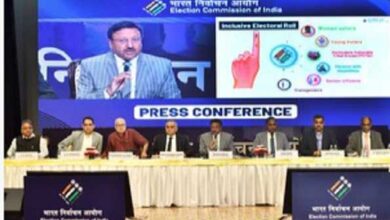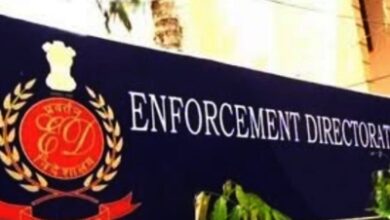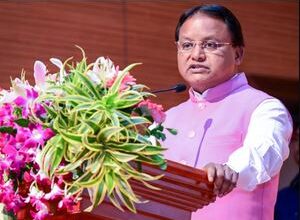
The parties sought guidelines to fulfil and realise the guarantee of personal liberty entrenched in Article 21 of the Constitution, for all citizens, including those targeted for exercising their right to political dissent and for performing their duties as the political opposition.
The political parties forming the petitioners are: Congress, DMK, RJD, BRS, Trinamool Congress, AAP, NCP, Shiv Sena (UBT), JMM, JD(U), CPI(M), CPI, Samajwadi Party, J&K National Conference, together representing 45.19 per cent of the votes cast in the last Assembly polls, and 42.5 per cent of the votes cast in the 2019 general elections, and holding power in 11 states/union territories.
Senior advocate A.M. Singhvi mentioned the matter before a bench headed by Chief Justice D.Y. Chandrachud for early hearing.
The top court agreed to hear the matter on April 5.
The counsel clarified that they are not attempting to affect the ongoing investigations.
The plea said that 14 opposition political parties have filed a petition, in light of the alarming rise in the use of coercive criminal processes against their leaders and other citizens exercising their fundamental right to dissent and disagree with the central government.
The plea submitted that investigating agencies such as CBI and ED are being increasingly deployed in a selective and targeted manner with a view to completely crush political dissent and upend the fundamental premises of a representative democracy.
The petition has been drawn and filed by advocate Shadan Farasat and settled by Singhvi.
According to the plea, only 23 convictions under the Prevention of Money Laundering Act, 2002 (PMLA) have been secured as of now, even as the number of cases registered by the ED under the PMLA have risen exponentially (from 209 in 2013-14 F.Y. to 981 in 2020-21, and 1,180 in 2021-22).
“Between 2004-14, of the 72 political leaders investigated by the CBI, 43 (under 60 per cent) were from the Opposition of the time. Now, this same figure has risen to over 95 per cent. The same pattern is reflected in ED’s investigations as well, with the proportion of Opposition leaders from the total number of politicians investigated rising from 54 per cent (before 2014) to 95 per cent (after 2014),” it further added.
The petitioners have sought from the apex court certain prospectively applicable guidelines governing the arrest, remand, and bail of persons in offences (which may or may not be punishable with imprisonment for above seven years) not involving serious bodily harm (thereby obviously excluding homicide, rape, terrorism etc.).
“As for arrest and remand, the petitioners seek that the triple test (whether a person is a flight risk, or whether there is a reasonable apprehension of the tampering of evidence or of the influencing/intimidation of witnesses) be used by police officers/ED officials and courts alike for arrest of persons in any cognizable offences except those involving serious bodily violence. Where these conditions are not satisfied, alternatives like interrogation at fixed hours or at most house arrest be used to meet the demands of investigation.
“As for bail, the petitioners seek that the principle of ‘bail as rule, jail as exception’ be followed by all courts throughout, especially in cases where non-violent offences are alleged, and that bail be denied only where the aforementioned triple-test is met,” the plea added.
It further contended that where special laws such as PMLA with stringent bail conditions are concerned, the petitioners seek that such bail provisions be harmonised with Article 21 of the Constitution.
“As such, therefore, where it appears that the trial is unlikely to complete within six months, the accused be released on bail even under special laws unless the conditions in the triple-test are not fulfilled.”






